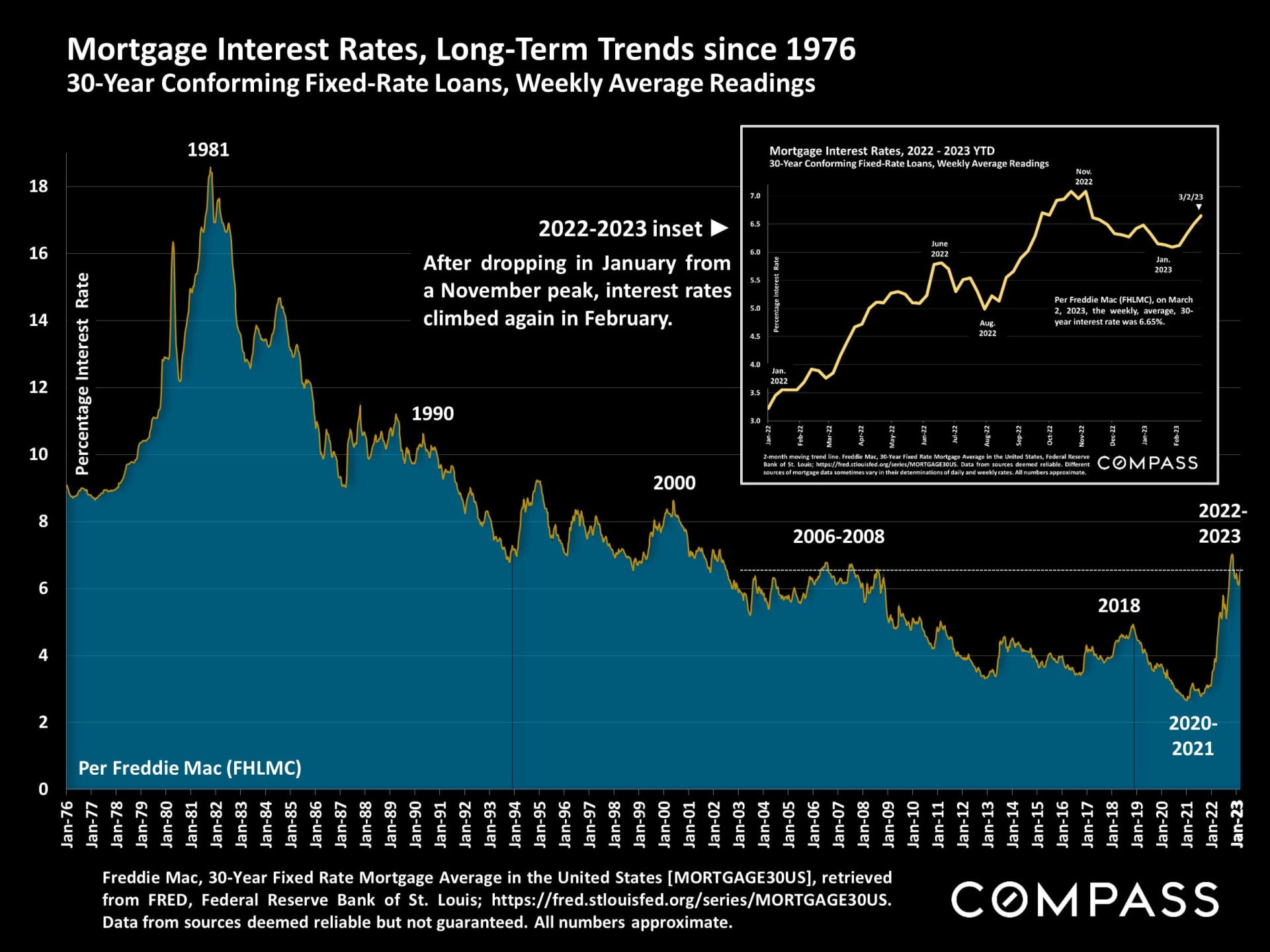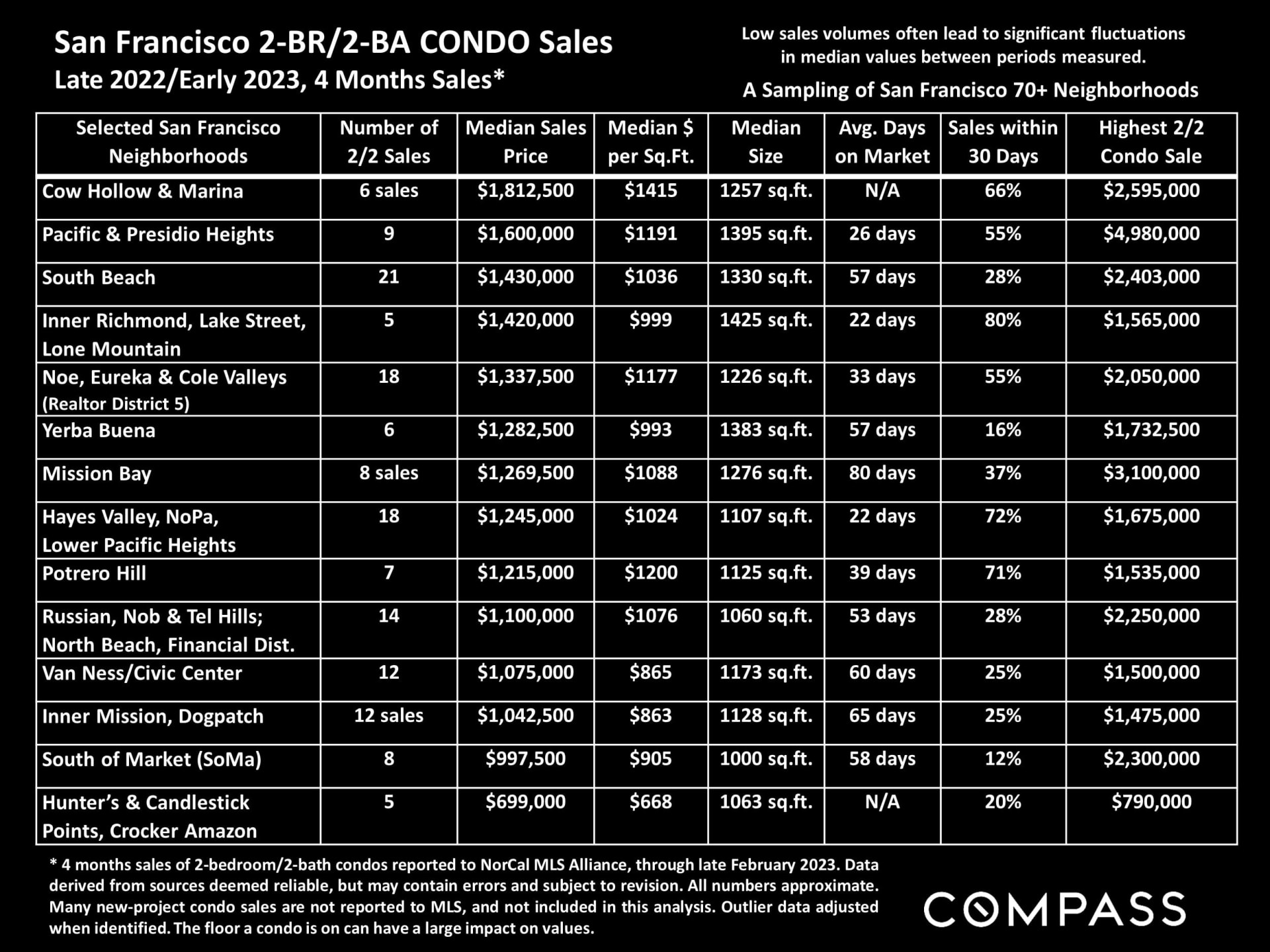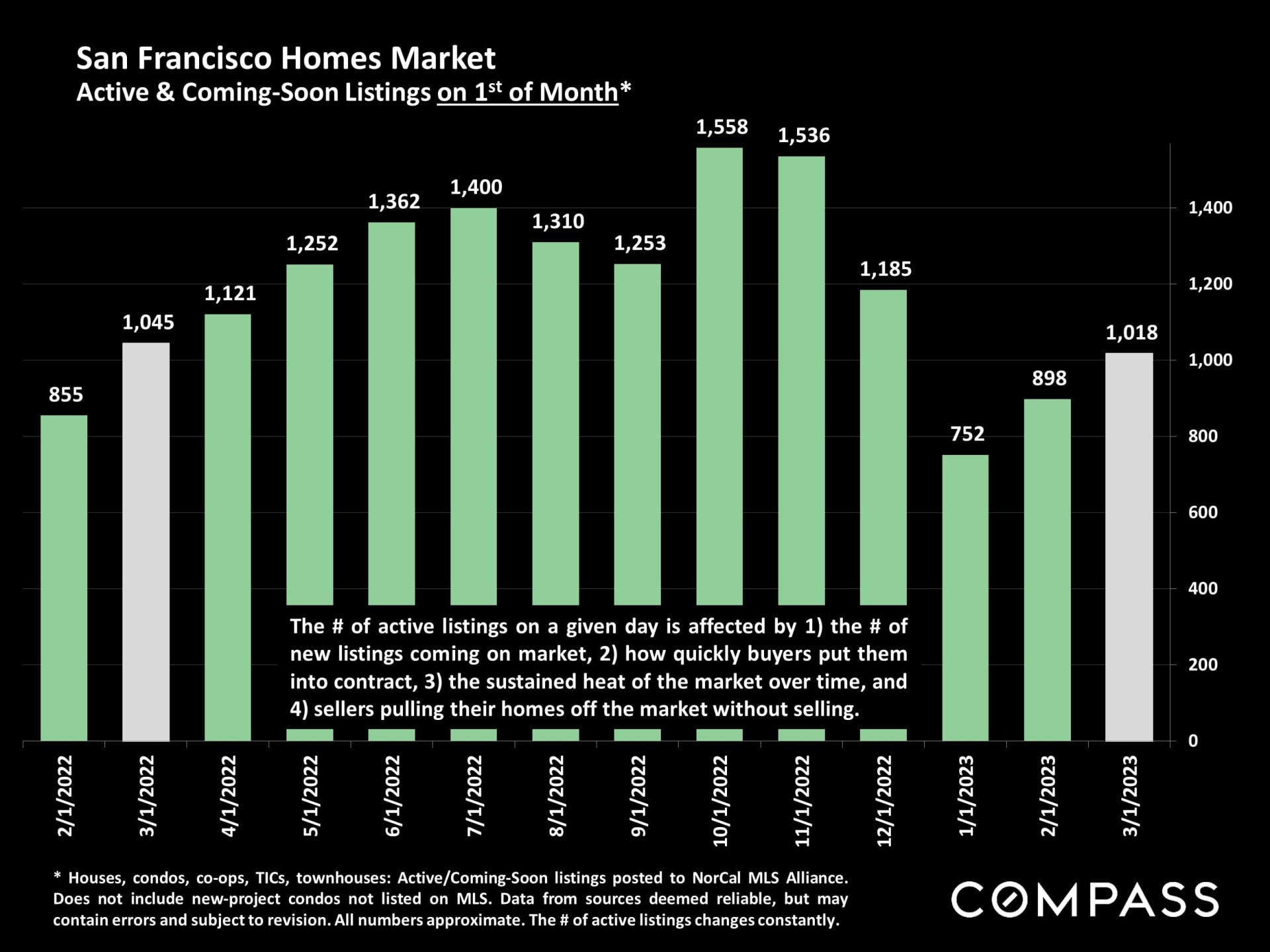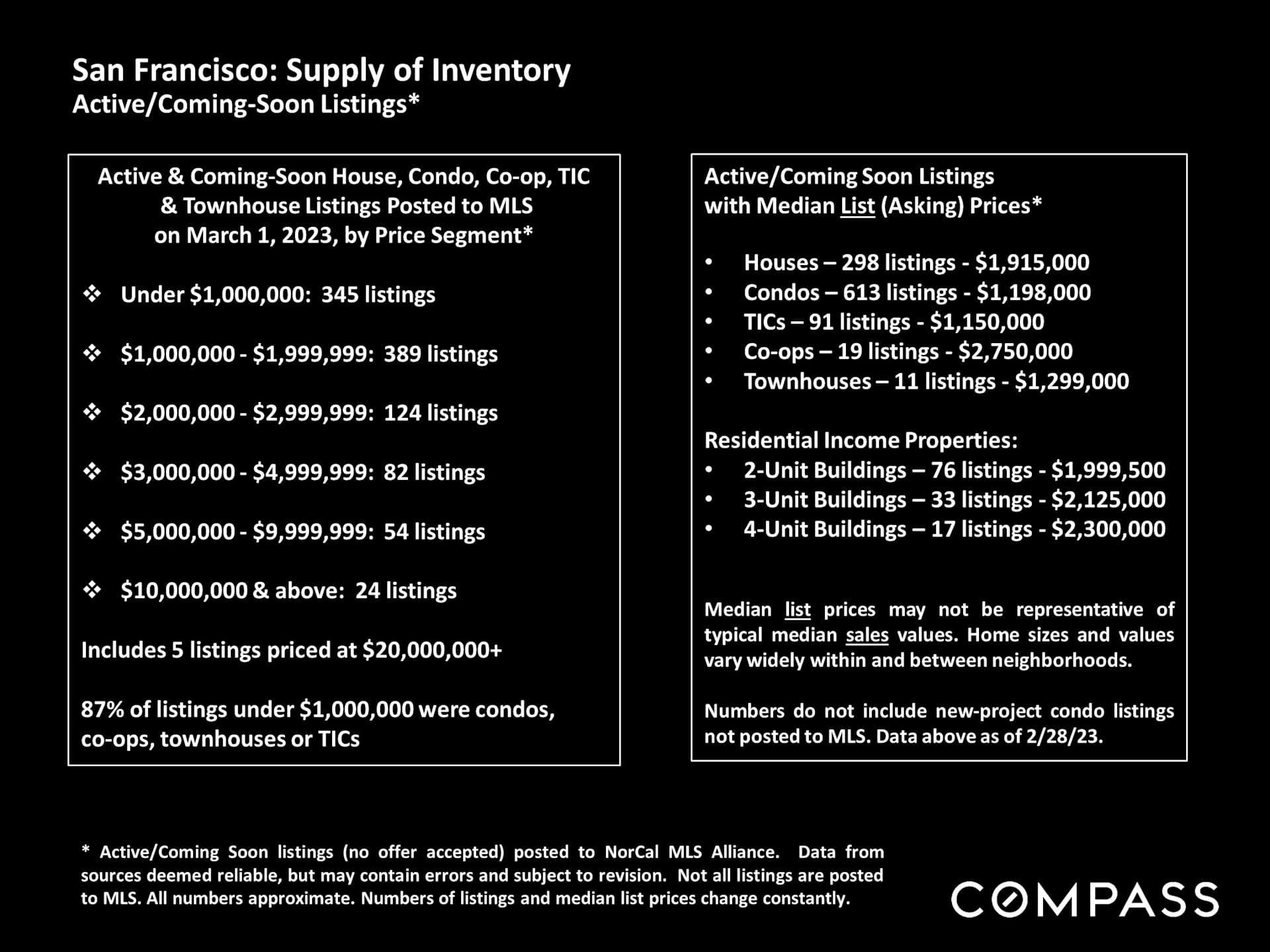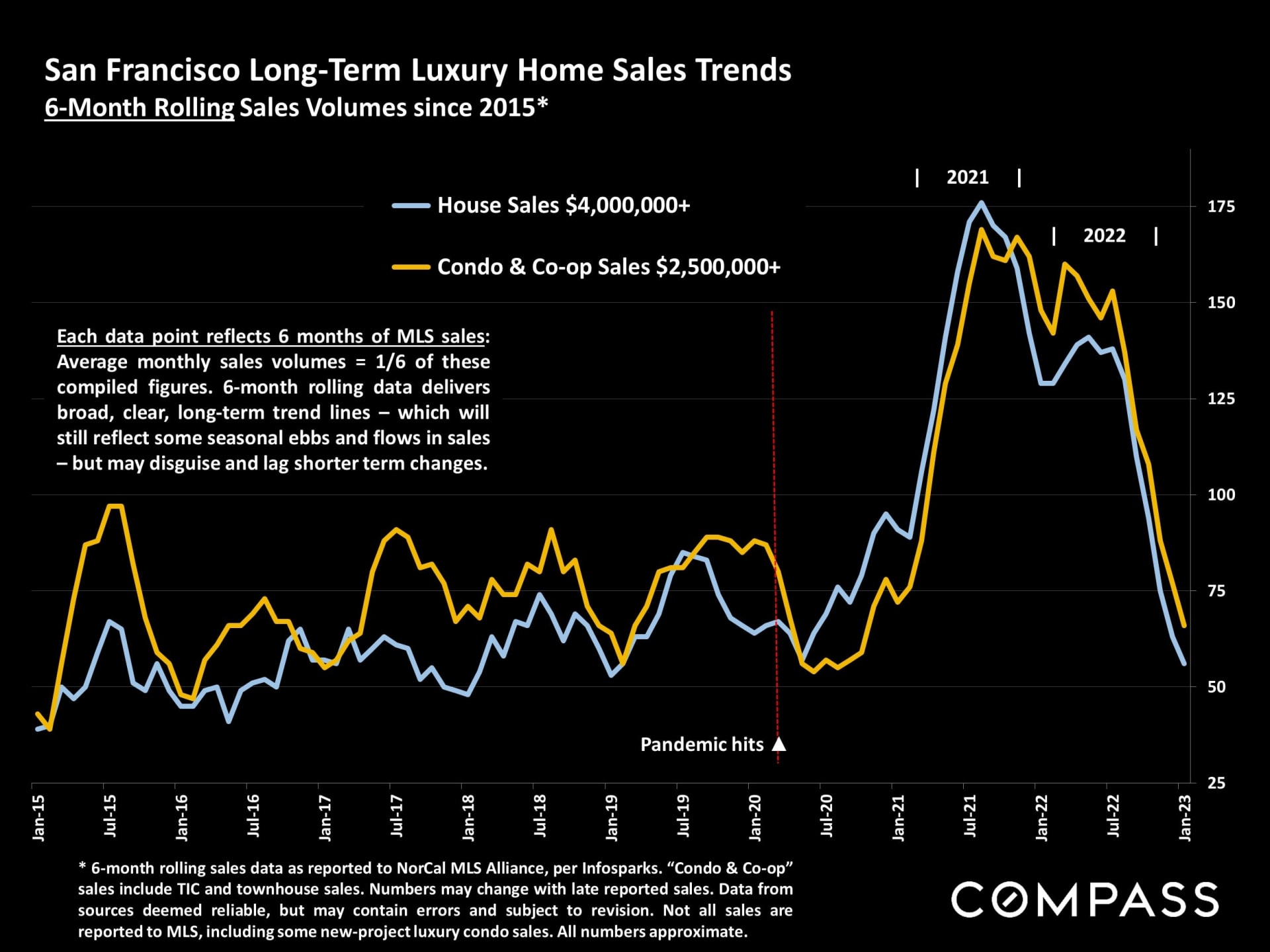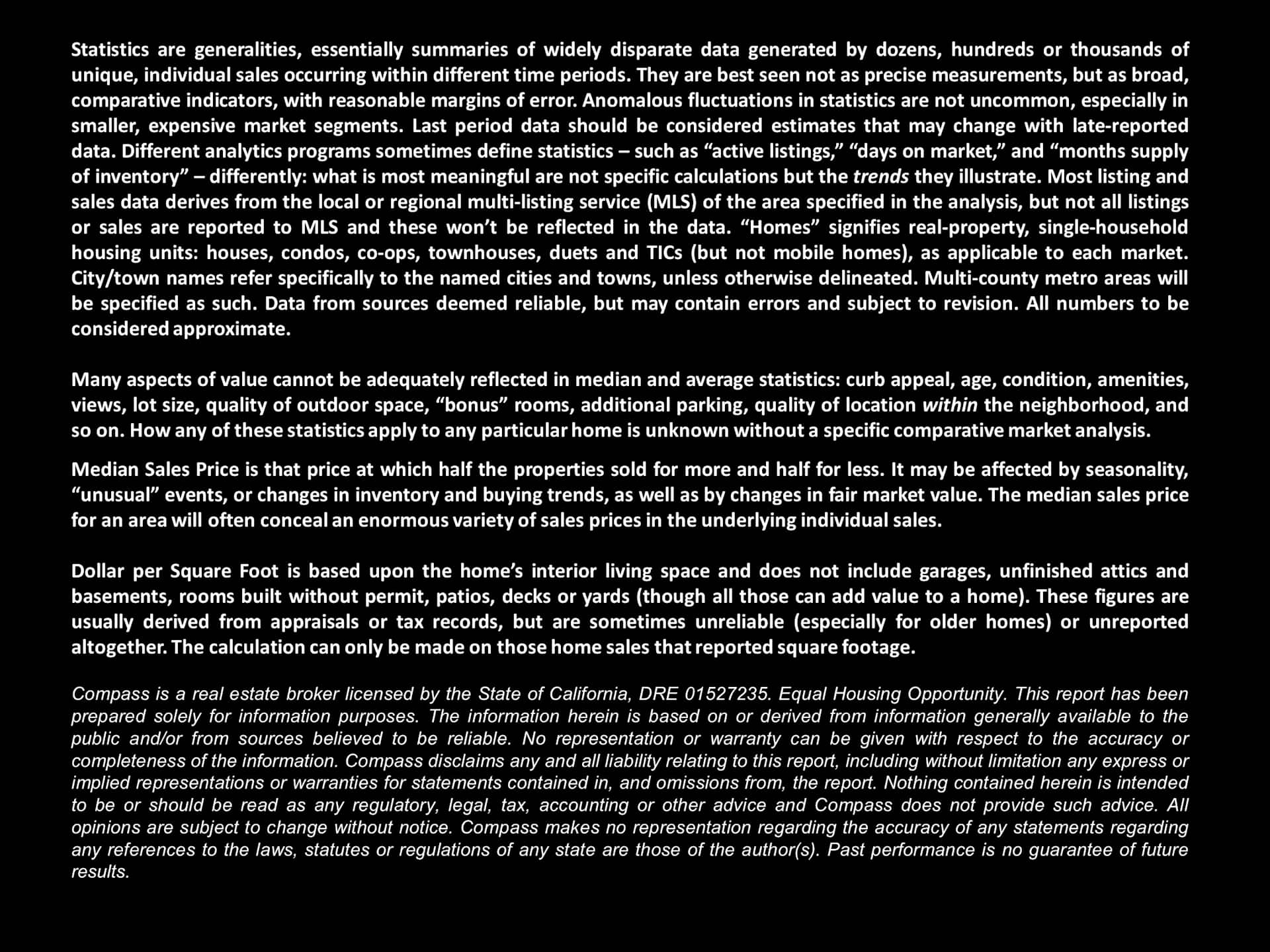2023 Market Indicators Turn Positive (But Interest Rates Climb Again)
After the acute decline in market activity occurring in the 2nd half of 2022, buyer demand
rebounded dramatically and most market indicators turned positive in early 2023: Open house
traffic, number of offers, and overbidding and absorption rates all saw improvement.*
It is too early for significant effects to show up in home prices: Indeed, through February, 3-
month-rolling median house sales prices saw year-over-year declines across all Bay Area counties.
(These percentage declines should be regarded cautiously until substantiated over the longer
term.) Even with the striking improvement in demand over late 2022, most year-over-year
indicators remain depressed, but these comparisons are with the severely overheated conditions
prevailing at the peak of a 10-year housing market upcycle. The market was still just waking up in
February. March through May is typically the most active listing and sales period of the year, and
should soon provide much more data on supply, demand and price trends. Over the last 3 years,
spring markets were deeply affected, in very different and often surprising ways, by the onset of
the pandemic (2020), the pandemic boom (2021), and soaring interest rates (2022).
As has been the case for the last 14 months, the biggest wildcard remains interest rates: After
dropping considerably in January from a November peak, they climbed again in February, with big
impacts on loan application rates. It has been very challenging to predict short-term interest rate
changes. Another major factor is the substantial decrease in the number of new listings coming on
market, a critical issue with wide ramifications if it continues.
*Sales in one month generally reflect deal-making in the previous month, and often pertain to listings
that have already been on the market for months longer. Many real estate statistics are lagging
indicators, and even dramatic shifts in demand may show up only very gradually in their readings.



